
Pudlo’s presentation focused on key shifts in chain pharmacies, including pharmacy benefit manager (PBM) reform, pharmacist-administered vaccine trends, and provider status.

Pudlo’s presentation focused on key shifts in chain pharmacies, including pharmacy benefit manager (PBM) reform, pharmacist-administered vaccine trends, and provider status.

With the growing importance of pharmacy services, Chen said pharmacists should think outside the box and get creative when finding effective payment models.

Jim Whitman, senior vice president of member programs and services at the National Association of Chain Drug Stores (NACDS), discussed the upcoming NACDS 2023 Regional Conference and what attendees can look forward to.
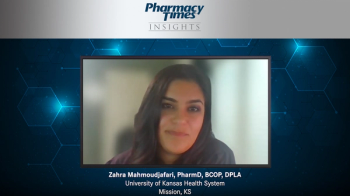
CAPTIVATE FD and GLOW studies results and takeaways are discussed by Dr Mahmoudjafari.

Dr Schrade discusses the impact of prophylactic treatment for patients with hemophilia A.

The standard treatment strategies for hemophilia A are explored by Lisa Schrade, PharmD.
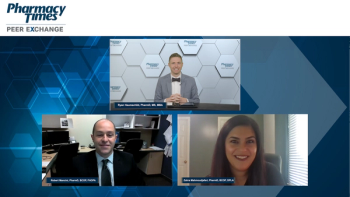
The panel of experts provide their closing thoughts, highlighting unmet needs and treatments on the horizon for MDS.

Drs Mancini and Mahmoudjafari discuss NCCN Guidelines affecting treatment strategies for patients with MDS.

Luke Gormley, PharmD, BCPS, discusses how pharmacists are involved in the management of inclisiran.
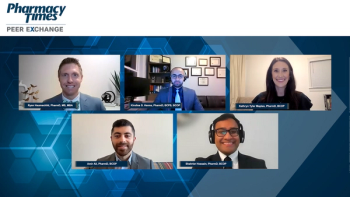
A panel of experts explore burdens facing patients diagnosed with RRMM.

Ryan Haumschild, PharmD, MS, MBA, leads a panel surrounding individualized strategies for treating patients with relapse/refractory (RR) MM.

Dr Mahmoudjafari highlights the changing treatment landscape for patients with CLL.
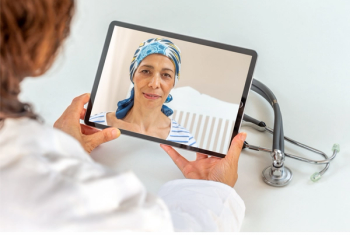
Sarah McDonald, cancer survivor and author of The Cancer Channel, discusses her experience battling 2 different unrelated cancers and the value oncology pharmacists could have provided with a greater presence on her care team.

Atta Chowdhry, RPh, shares his final thoughts regarding the trajectory of hemophilia treatment strategies.

Cost strategies impacting the treatment landscape in hemophilia, like reimbursement rates , are discussed by a medical expert .

Dr Mancini navigates challenges inhibiting patients to receive optimal care amid diagnosis of MDS.

Dr Mahmoudjafari shares considerations for incorporating oral agents into MDS treatment landscape.

Jordan Sloshower, MD, MSc, explains his experience working in several clinical trials investigating psilocybin-assisted therapy.

“It's an honor to walk the last steps with someone, it is.”-Mary Lynn McPherson, PharmD, MA, MDE, FAAHPM

Zahra Mahmoudjafari, PharmD, BCOP, DPLA, opens a discussion surrounding chronic lymphocytic leukemia (CLL).

Although the FDA has now allowed retail pharmacies to dispense mifepristone, a drug used for medicated abortions, questions still remain about the requirements for pharmacies and the availability of the drug.

Atta Chowdhry, RPh, explores the burdens associated with hemophilia A.

Atta Chowdhry, RPh, discusses challenges with factor replacement therapy in patients with hemophilia A.

Key opinion leaders discuss how quality of life is impacted by refractory anemia and treatment toxicity in patients with MDS.

Drs Mahmoudjafari and Mancini evaluate MDS treatment pathways and offer potential needs for switching treatment strategies.
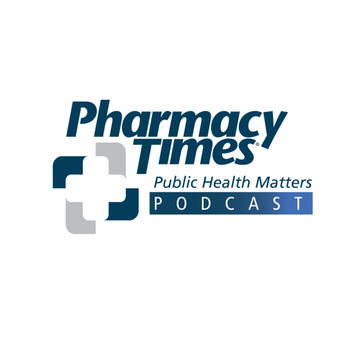
The first episode of the Public Health Matters Video Series features Tom Frieden, MPH, MD, who discusses his background and influence on public health and national policy.

A panel of medical experts discuss supportive care needs for patients with myelodysplastic syndrome.

Experts outline treatment goals for patients diagnosed with MDS.

Michael Brown, vice president of Managed Services at Cardinal Health, discusses ways for pharmacists to help manage costs post-pandemic.

Stephen Davis, PharmD, senior director of Health System Strategy at Shields, and Erica Diamantides, PharmD, specialty pharmacy manager at UW Medicine, discuss the current guidance and best practice for specialty pharmacy accreditations.